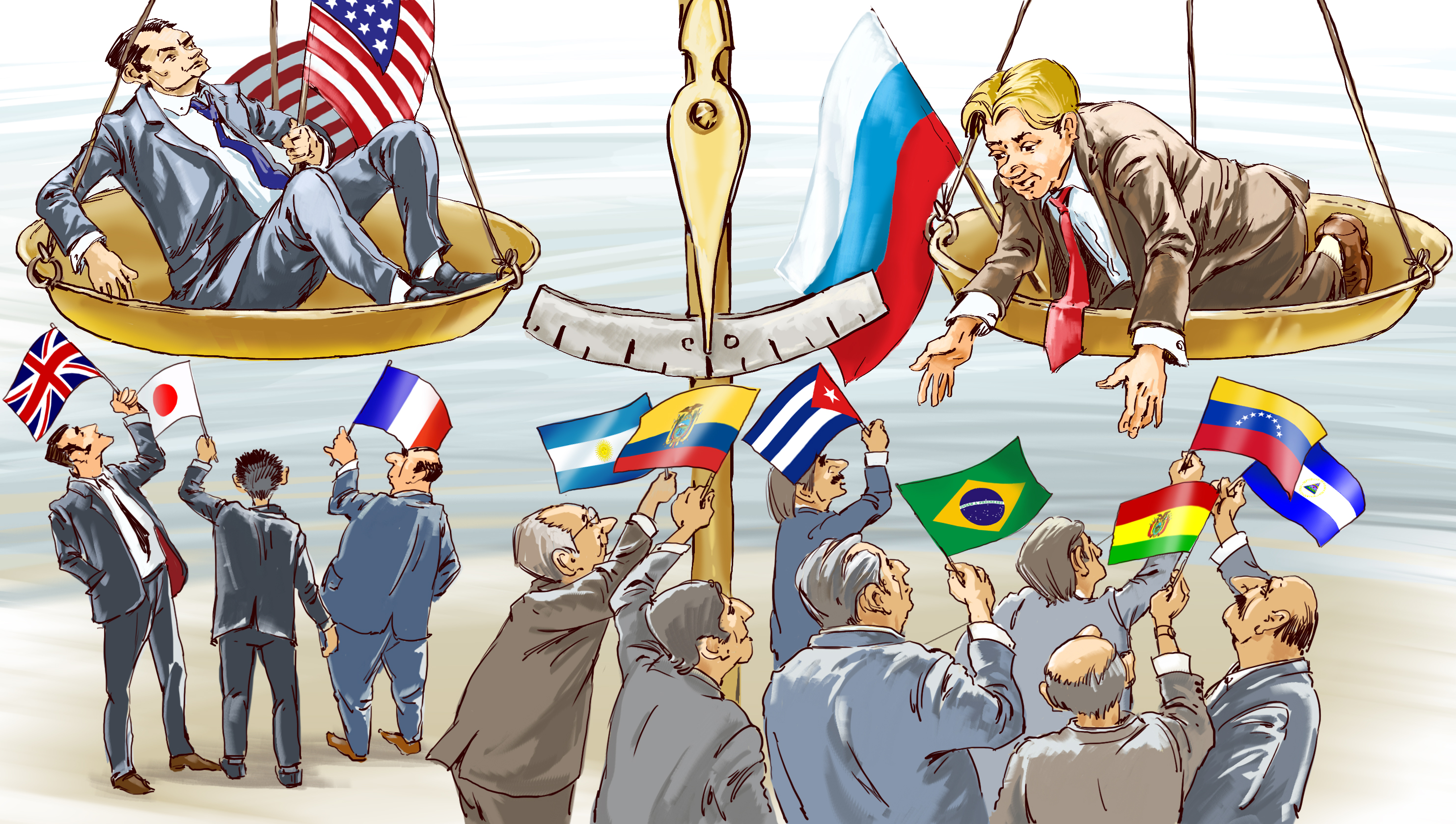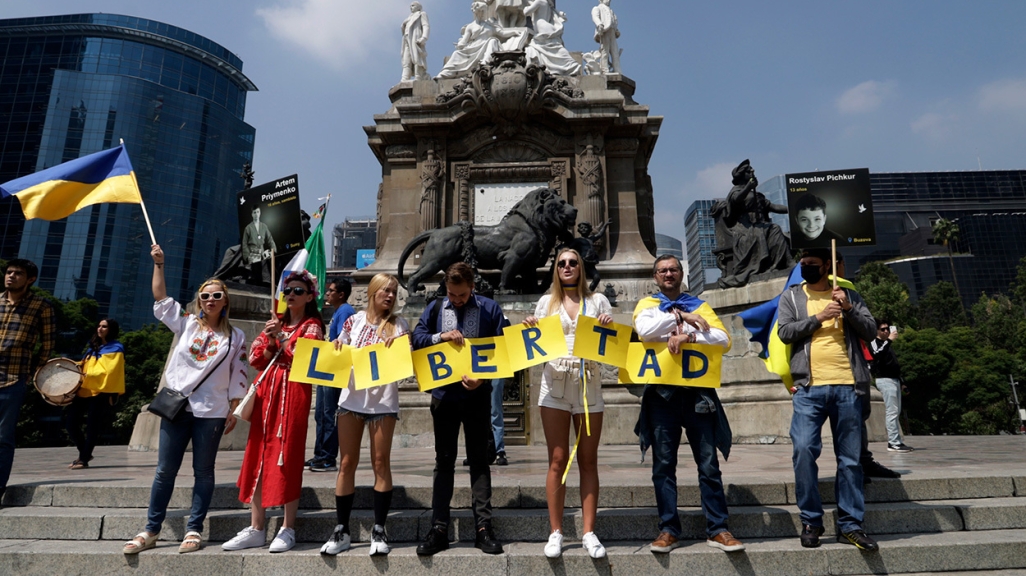
Photo: Politico
Zelensky’s EU-CELAC Summit Rejection
Ukrainian President Volodymyr Zelensky will not attend the summit for the European Union (EU) and the Community of Latin American and Caribbean States (CELAC) in July. Zelensky had been invited to the summit by Spanish President Pedro Sanchez, but various Latin American leaders opposed his presence. The reasons for this stance are officially unknown. However, the biggest reason for Zelensky’s rejection is that CELAC leaders wanted to maintain focus on Latin America and the Caribbean. While Zelensky is disappointed that he will not be able to attend, he understands this decision. Zelensky has said that he will work to strengthen relationships between Ukraine and Latin America. The EU-CELAC summit is occurring for the first time since 2015. The summit’s goal focuses on trade, investment, security, and climate change.
What were Zelensky’s goals in attending the EU-CELAC summit?
Zelensky has made various international appearances since the beginning of the Russia-Ukraine War last February. Most countries in Latin America have been neutral. They have not been vocal about supporting Ukraine while not condemning Russia. Zelensky’s attendance would have created a platform to explain why Latin America is fundamental to the war effort. He could have explained what is at stake if Latin America continues to be neutral by highlighting the war's human cost and economic impact. Zelensky’s primary goal is a unified, universal stance condemning the war. To a lesser extent, he was also trying to see if Latin American countries would provide military assistance, humanitarian aid, or impose sanctions on Russia.
Why would Latin American leaders be reluctant to accept Zelensky to the summit?
Russian Military Supplies:
According to 2016-2020 figures from the Stockholm International Peace Research Institute (SIPRI), there is a high percentage of defense imports to various Latin American countries such as Bolivia (60%), Venezuela (40%), Cuba (30%), Nicaragua (25%), and Ecuador (20%). Even if fewer arms sell due to the war, there will be repercussions if Russia stops supplying them with arms. It is in these countries' interests to avoid meeting Zelensky.

Photo: Russia Beyond
Political Considerations:
Many Latin American countries see the Ukraine-Russia issue as a proxy war between NATO and Russia. Countries such as Cuba and Venezuela have alliances with Russia. Meanwhile, Bolivia and Nicaragua have been critical of NATO’s actions in the past. Other Latin American countries see the Russia-Ukraine War as a uniquely European issue and that they should not get involved. Mexico, Argentina, Colombia, and Peru, share this perspective. Said countries have condemned the invasion but have not sent weapons to Ukraine or imposed sanctions on Russia. Considering these various conflicts of interest, it is difficult for Latin America to have firm, unified support for Ukraine’s efforts.
Economic Impact:
The war in Ukraine has caused an energy and food crisis, and most Latin American countries are vulnerable to these shocks. Latin American countries might be hesitant to take a side because it could further damage their economies while global inflation worsens. Many Latin American countries depend on oil and gas imports and rely on their agricultural exports. Since the start of the war, both energy and food markets worldwide have suffered supply issues. If Latin American countries were to be more involved, it would only worsen this problem for these countries. Since most Latin American countries are developing countries, they do not have the economic freedom to join the war effort.
What can Zelensky do to gain trust in the region?
Considering how politically fragmented Latin America is, Zelensky will have to take a unique approach to Latin America. Zelensky has the best chance to convince neutral Latin American countries to contribute more to Ukraine’s war effort. By convincing one leader from the neutral countries to be more pro-Ukrainian, other leaders may make a similar policy shift if there are no repercussions. Since the current cost-benefit is disadvantageous to Latin America, Zelensky must ensure that aligning with Ukraine will have more benefits than costs. In particular, the emphasis should be on the economies of these Latin American countries. If Latin America’s perspective on the war changes, Ukraine would have more resources to pressure Russia to end the war. This approach may require too much time, which can divert to other vital aspects of the war.

Photo: AS/COA
How can other influential powers in the region influence Latin America?
As the war in Ukraine advances, there might be growing pressure to involve Latin America. The main factor stopping most Latin American countries is the economic repercussions that could arise if they become more involved. Considering that the US and China are the two primary powers that trade with most of Latin America, their influence can shape how Latin America could approach the conflict in the future. If China were to advance its economic interests in Latin America, various countries would be even more hesitant to take a firm stance to support Ukraine. Since the war started, China has kept its neutrality, so if China were to invest more in the region, more Latin American countries would remain neutral. If the United States decides to pressure Latin America more, most of the region would be obligated to take a more pro-Ukrainian stance. The US has more economic power accounting for 44% of Latin American trade (Word Bank). Meanwhile, China’s percentage is at 19%. If China is more aggressive in its economic approach to Latin America, it could redefine how the region sees the war.
Is Latin America’s support needed right now?
Latin America’s support is not essential for the war in Ukraine right now. The main actors supporting Ukraine are the United States and the European Union. However, the duration of the war and US/EU support can make Latin American countries’ help needed. It might become more difficult for Ukraine to sustain itself if the war prolongs. Even with the resources provided by the US and EU, supplies can become strained. It is here where Latin American countries can become vital via humanitarian aid and military supplies. Another way Latin American countries could become key actors is if the US or EU increase their support. Since the US and EU are currently the most influential powers in the region, some Latin American countries might be obligated to increase their support.
Key Takeaways from Zelensky’s Rejection to the Summit:
Ultimately, Latin American countries have various perspectives and interests in the Russia-Ukraine War. While Zelensky could have made a meaningful impact at the EU-CELAC Conference, Zelensky must take a more individualistic approach towards certain Latin American countries. Latin American countries are concerned about the economic repercussions and their trade alliances that can fragment domestic policy. If they show meaningful support toward Ukraine, it might worsen this dynamic. Therefore, these considerations should be taken into consideration by Zelensky if he wants more support from Latin America as a whole.
Share This Post On
0 comments
Leave a comment
You need to login to leave a comment. Log-in


